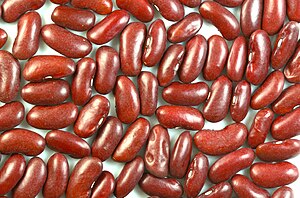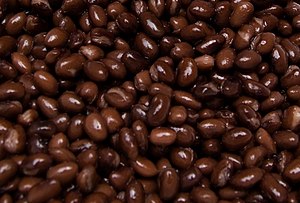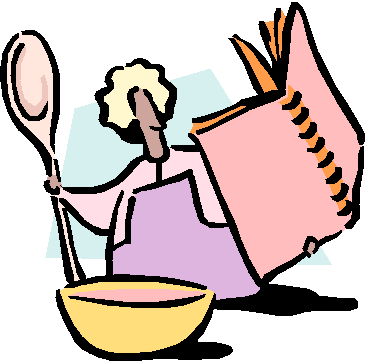Beans: Canned or Dry?
| Image via Wikipedia |
If you're not eating beans, you really should be! I know - I'm one to talk. My mom cooked beans often when I was growing up, and I really didn't appreciate them or even like them - except in chili. I did like the cornbread she served with them, though! It wasn't until I found and tried the recipe for Five Bean Soup that I discovered I really like beans - a lot.
Canned beans make it really easy to add beans to your diet. I try to always have a few cans of kidney beans and black beans on hand, and you can buy many other varieties of canned beans. They're really handy to grab and add to any dish where you want to add a little extra protein or fiber - casseroles, soups, pasta, salads, or anything else you can think of. There are also many tasty recipes you can find that feature or include beans - my Five Bean Soup for one, and the Turkey Barley Chili I just posted.
| Image via Wikipedia |
For use in recipes, I've found that 1-1/2 cups beans is approximately equal to one can of beans. A 1-lb. package of dried beans makes a little more than the equivalent of 3 cans of beans - and usually costs the same or less than one can. Cover with 3/4 cup of the cooking liquid if you're going to freeze them, and they're almost as handy as those cans of beans in your pantry. Since the liquid doesn't usually go into your recipe, you can thaw them fairly quickly by putting the frozen beans into a colander and running warm water over them.
So, which is better - canned or dry? I say both. How's that for making a decision? Both canned and dried beans have their place. Canned beans are ready and waiting whenever you need or want them. Dried beans require that you plan ahead, but once cooked you can store them in the refrigerator for several days or freeze them in individual containers. Dried beans are less expensive and don't give you the added salt or sugar you get with the canned beans - why do they put sugar in kidney beans, anyway? Always be sure to drain and rinse your canned beans before using them to remove most of that added salt. If you're not already using beans, start by buying some canned beans. If you've been using canned beans for a while, try buying some dried beans and cooking your own. I especially like cooking my own beans when I'm making something like chili that requires several cans of beans - why open a bunch of cans when I can cook one package and have all the beans I need? And save money, too.







 many recipes in the world that there is just no excuse for using one twice if it's not something you really enjoy. Now, whether the rest of the family enjoys them or not is another story, but I try to add special notes about who likes what.
many recipes in the world that there is just no excuse for using one twice if it's not something you really enjoy. Now, whether the rest of the family enjoys them or not is another story, but I try to add special notes about who likes what. 




